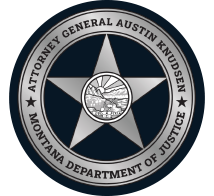Montana citizens benefit widely from the activities of charities. Charities help the less fortunate of our state. Charities respond to natural disasters. Charities conduct needed research on diseases and assist with our healthcare. Some charities educate us so that we can achieve our vocational goals and so that we become more knowledgeable and productive citizens. And some charities enrich us with their art and performing arts. In these ways and many more, charities benefit our communities and enhance our quality of life.
However, in addition to these legitimate charities, there are also fraudulent charities, which solicit us to donate. The scammers attempt to take advantage of Montanans’ generosity. They harm legitimate charities.
When you are asked to donate, give wisely. Ask questions and donate only when you are satisfied that your money will be used in ways you consider are appropriate. Consider asking some of the following questions:
- How much of my contribution will go to the charity for its charitable purposes?
- Are you a paid fund-raiser? (If the solicitor is paid, a portion of your contribution will pay the solicitor’s salary.)
- Ask them to send you written information on how your donation will be distributed.
- Ask them to provide you with written documentation indicating that your donation will be tax deductible.
Beware of “red flags”
- The solicitor uses high pressure tactics.
- The solicitor offers to pick up your donation.
- The solicitor promises you sweepstakes winnings in exchange for your contribution.
Additional tips
- Pay attention to the charity’s name. Some phony charities intentionally attempt to mislead you by using names that are similar to legitimate, respected organizations.
- When in doubt, contact the charity directly. If the charity is not aware of the solicitation, you may be dealing with a sham solicitor.
- If you receive unsolicited goods in the mail, you are under no obligation to contribute.
- Do not make cash contributions. Do not give your credit card number to a telephone solicitor or in response to any unsolicited phone call you receive. Rather pay by check. Your cancelled check will help you for tax record purposes. Use the full, official name of the charity on your check.
We believe the following resources may be helpful to you in your efforts to learn about legitimate charities.
Charity Watch https://www.charitywatch.org
A charity service that provides ratings and reviews charities and their financial health.
BBB Wise Giving Alliance http://give.org
The Alliance evaluates charities that are the subject of donor inquiries based on the voluntary council of Better Business Bureau standards for Charitable Solicitations. The alliance offers a Wise Giving Guide.
Charity Navigator http://www.charitynavigator.org
A private, independent organization that evaluates and provides ratings and reviews on charities after assessing their financial health.
Foundation Center http://foundationcenter.org
The Center maintains a comprehensive database for basic information about private and community foundations in the United States.
Give Well http://www.givewell.org
Conducts in-depth research on international charities.
GuideStar http://www.guidestar.org
GuideStar provides copies of charities’ IRS 990 information returns and other information on the programs, activities and finances of nonprofit organizations.
National Center for Charitable Statistics, The Urban Institute
http://www.nccs.urban.org
NCCS is a national clearinghouse of data on the nonprofit sector in the United States.
Federal Trade Commission – Charity Scams
http://www.consumer.ftc.gov/features/feature-0011-charity-scams
Guidance on what you need to know about charity scams
Internal Revenue Service – Charities and Nonprofits Search Page
http://www.irs.gov/Charities-&-Non-Profits/Exempt-Organizations-Select-Check
Search for a charitable organization to find out if a charity is exempt from federal taxation and how much of your contribution is tax-deductible.
